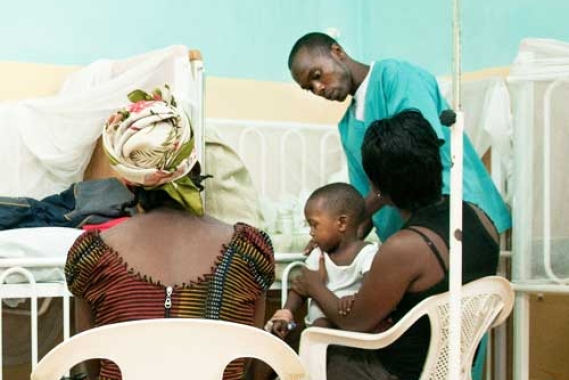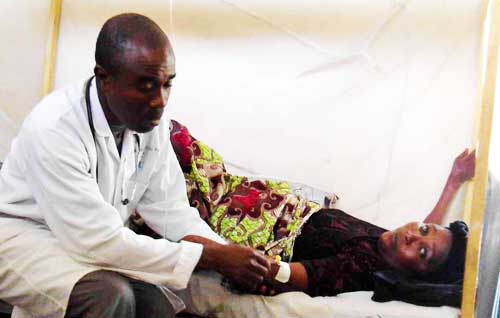Ebola Awakens Widespread Fear in Liberia, with Recent Memory of Civil War

“Ebola has brought fears, not of civil war, but of being killed by a neighbour or friend who has the deadly virus disease,” says George Kordahi, National Director of SOS Children’s Villages Liberia.
Schools are closed in Liberia. SOS Children who were looking forward to returning to school in September now face more time at home and in the SOS Village, barred from playing with their friends in the surrounding communities.
SOS mothers, aunties and children are beginning to feel trapped at home but – for their own protection – they have been asked to restrict their movements.
“It has been difficult to cope,” Kordahi says. “And it has not been easy for me to ask some of our moms and aunties to leave us and rather stay in their communities or for those who remained to know they cannot leave to go to their own families. Then the moms must still risk their lives when they go to the market to buy food to cook for the children.”
Kordahi sounds tired, but determined. “I am fine. I am okay. We are all used to these conditions. I am used to it. Most of us passed through the wars and mayhem. We are all trying our best to stay strong, to keep others strong. If we go weak, they might too. We have to keep doing the work. We are trying our best.”
The SOS Medical Centre in the capital Monrovia is the only one left operating 24 hours a day.
 The SOS Medical Centre in Monrovia is basically the sole medical centre still fully operational in the whole Monrovia area. Public hospitals and clinics in the area have been badly affected by the outbreak of the Ebola virus disease and several have had to close because medical staff has died.
The SOS Medical Centre in Monrovia is basically the sole medical centre still fully operational in the whole Monrovia area. Public hospitals and clinics in the area have been badly affected by the outbreak of the Ebola virus disease and several have had to close because medical staff has died.
The SOS Medical Centre is not treating Ebola, but is receiving patients with other ailments and medical needs. If, however, a patient is suspected of having the virus, which can have a fatality rate of up to 90% - although the current rate is around 55% - the SOS medical staff immediately alerts the Liberian ministry of health and social welfare. If blood tests confirm Ebola the patient must be transferred to a treatment centre.
“We are very busy at the medical clinic – this is now where most of our efforts go,” Kordahi explains. “Our nurses and physicians come first. Those who support us with material and protection gear help us to protect ourselves and our critical staff so that we can go on. We are treating citizens and foreign nationals now.”
Kordahi is clearly concerned about the morale of his co-workers. “We have seen all hell break loose,” he says. “Families and patients do not want to accept the news. The government has deployed the police and army to all hospitals, to try and keep the situation under control. One has to understand, this is serious. Despite all the sensitising, people are still in denial.”
As the official toll continues to climb, the WHO has said that the scale of the Ebola outbreak has been vastly underestimated and that “extraordinary measures” are needed to contain the disease and that “a massive scaling up of the international response” was being coordinated by the UN health agency.
Liberia has suffered more than 300 Ebola deaths and work was begun on Thursday to expand its Ebola treatment centre in Monrovia, one of only two such centres in the country of 4.2 million people.
Canadian's wishing to support SOS Children's Villages are encouraged to sponsor a child, sponsor a village or to make a direct donation. Your support ensures that SOS Children's Villages can continue to provide a safe and loving home to orphan and abandoned children who are in the most need.
